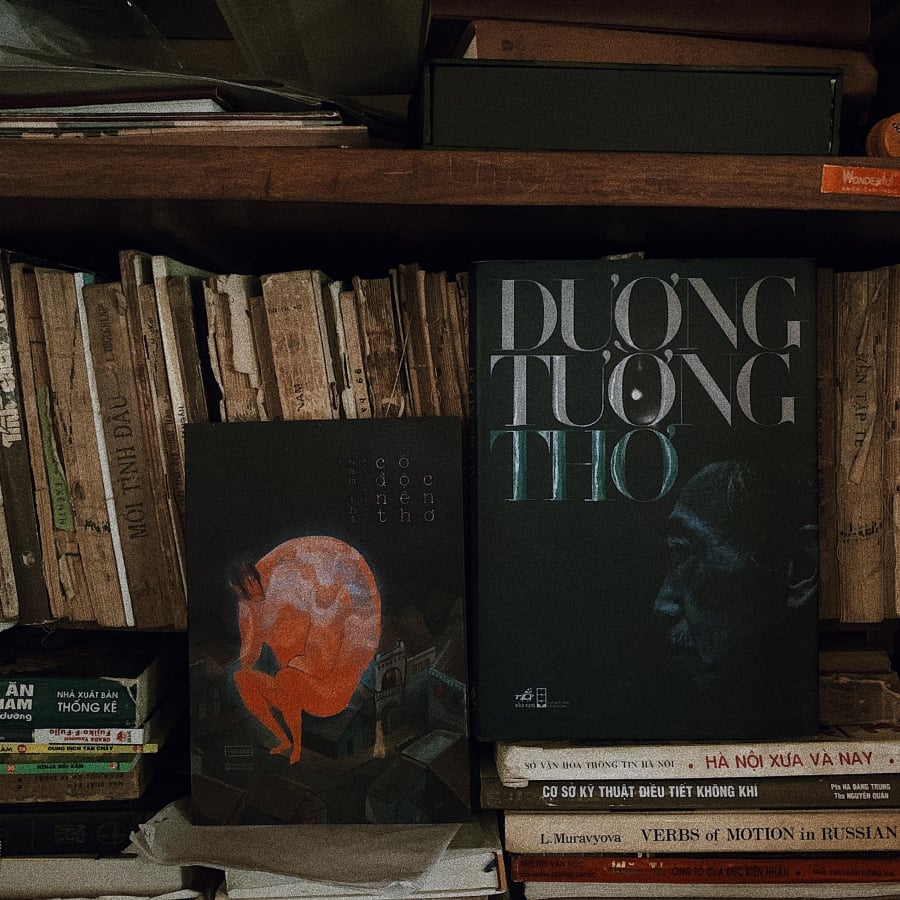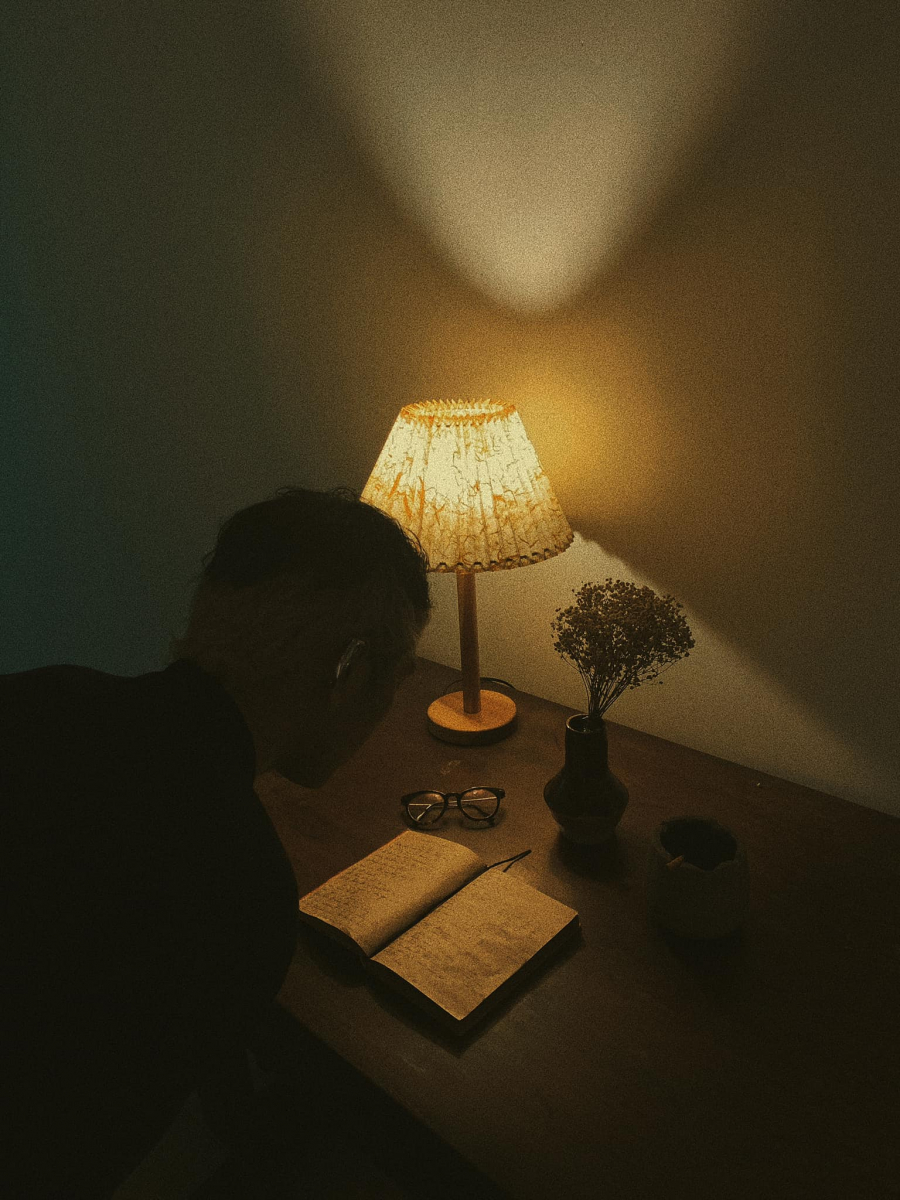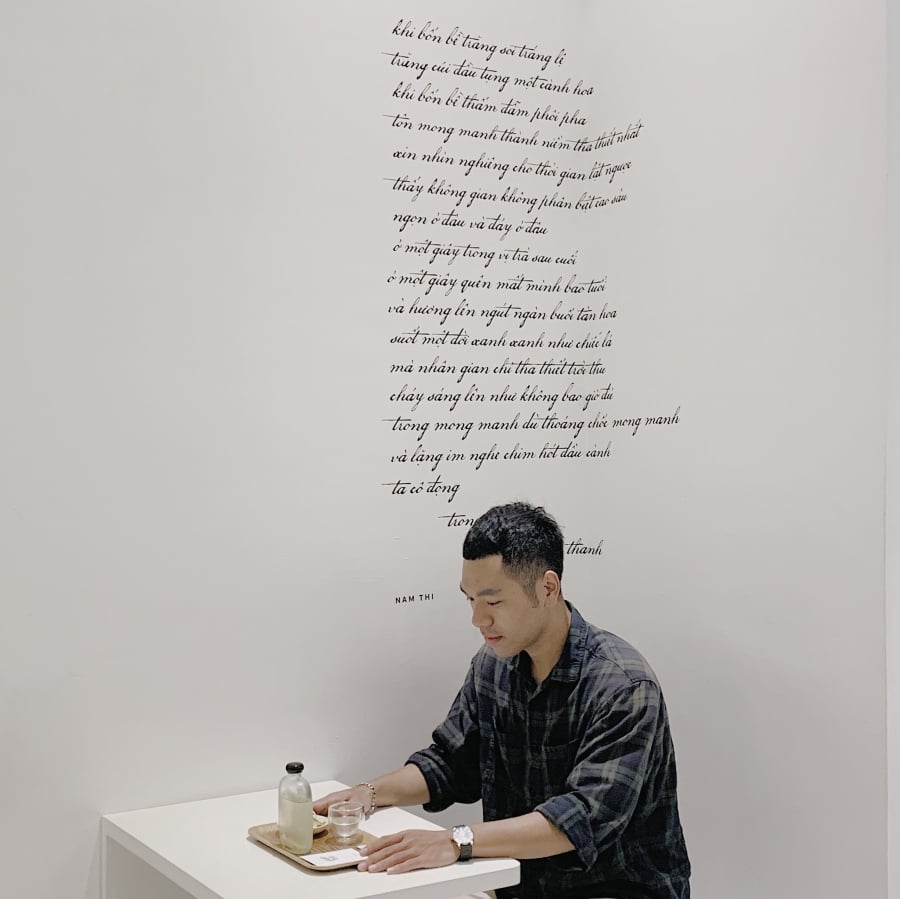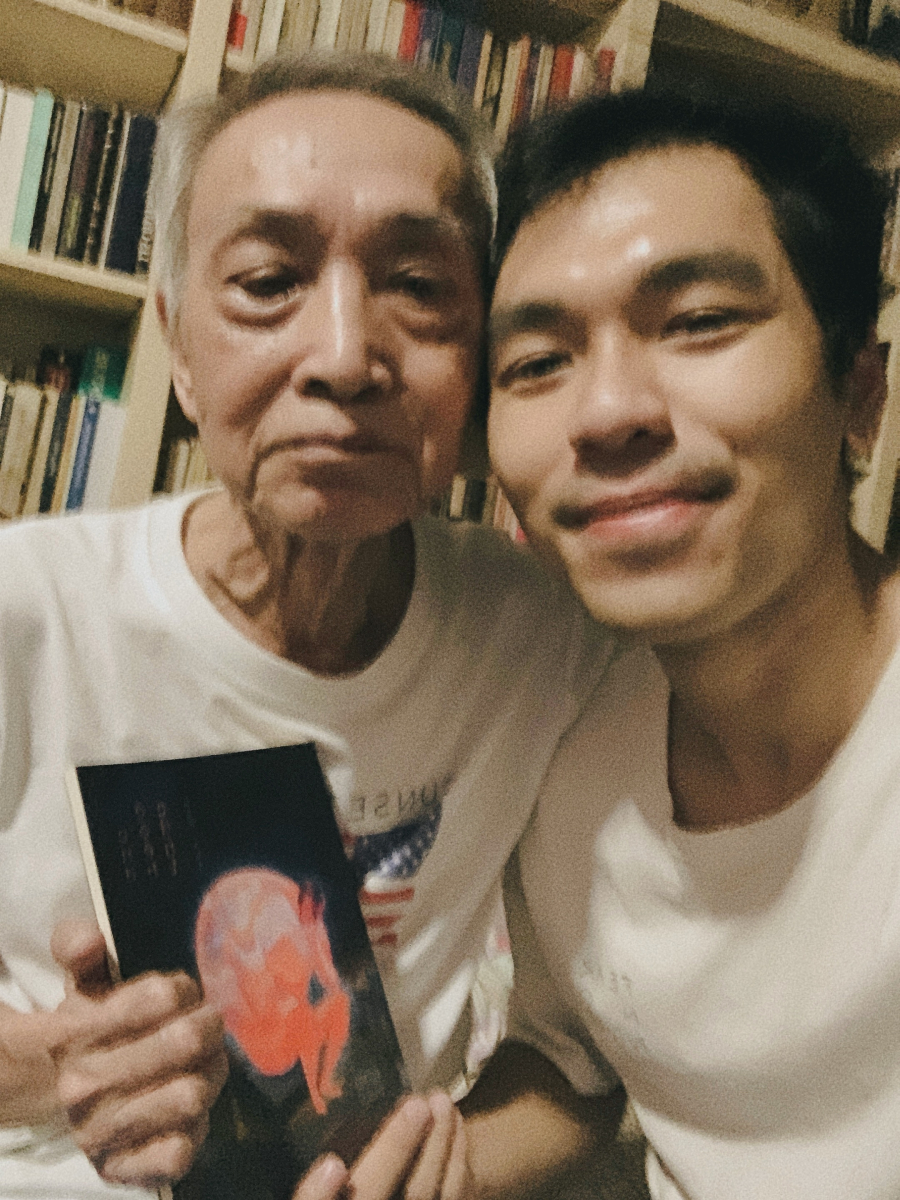Born in 1994 and raised in Hanoi, after graduating from the Academy of Journalism and Communication, Nam Thi moved to Saigon to work and primarily pursued her career there. Alongside her work as an editor for several fashion and lifestyle magazines, Nam Thi has always...poetry practiceThrough writing and sharing on her personal page; speaking as a talk show speaker about the art of poetry; or performing poetry and music on stage with other young artists… But perhaps the first major milestone in Nam Thi's poetic journey wasPoetic solitude- This anthology comprises 36 of his poems, published by Tao Dan last June.
As the author himself describes, the overarching theme of the entire collection is the loneliness of a young urban dweller today. The 36 poems are written in various genres; some are easy to read, some difficult, some short, some epic in form; most are free verse without rhyme, but with a clearly defined poetic rhythm.

Lonely Poet, small beside Poetry - Duong Tuong
My first question is, what does your pen name, Nam Thi, mean?
Actually, I don't even remember when that name originated. It's been familiar to me for a long time, beyond the realm of pen names, because my father, grandmother, and great-grandmother always called me Nam Thi. To be honest, my birth name, Le Viet Thi, sounds more impressive, but Nam Thi is gentler and means "poetry of Vietnam," so I usually introduce myself by this name.
"Poetic Solitude" - is this book specifically for readers who can feel and appreciate solitude?
I named the bookPoetic solitudeIt has four words, but conveys three meanings: Solitude is something truly poetic and lyrical; Solitude is the origin of Nam Thi's poetry; and Solitude created Nam Thi himself, because my name also means "poetry".
This book is primarily for its author, and as it moves from the depths of my being, it will reach the depths of everyone else's. Besides the poetry, the figure sitting with their chin resting on their hand on the cover and the Epilogue at the end are all anonymous, which helps to broaden the scope of the work. Everyone can "fill" in their own image, see themselves living within it.

The painting by artist Tran Nguyen Trung Tin was used as the cover art for "Solitary Poetry".
While works of art such as books and music in Vietnam today often focus on...lonely, then Nam Thi was loyal toaloneWas that solitude inherent in him, or was it formed during his upbringing?
Everything stems from personal circumstances. If it sounds a bit "sentimental," please understand. Because I lived alone from a very young age, and in many situations like illness, exams, my first time presenting poetry, and many other firsts for a young boy from Hanoi, everything was "known and understood only by myself," and that's what shaped my soul.
It's not that I don't have family or friends, but there are difficult periods in life, and everyone has to navigate their own path. I have no reason to demand that everyone focus on me. I'm comfortable with being alone because I know how to accept my circumstances.
SoaloneIs it a state of mind, or a necessary quality, that an artist must possess to create works of art?
It is indeed a state and a material, but whether or not it is necessary depends on the "innate disposition" of the artist.

Fashion designer Thuy Nguyen and Nam Thi in a talk show at Hoa Sen University about artistic creation from cultural inspiration.
How long did it take you to compose the 36 poems in "Poetic Solitude"? Are they connected to a specific period or experience in your life?
I didn't have a process for writing a manuscript, because I'd been writing in my notebook since I was in school:In times of hardship, I take refuge in poetry.My personality doesn't like complaining because I find it pointless, so I transform it into poetry, and I pour my feelings into the words, so I just keep writing. It wasn't until people said, "Publish a book, Thi!" that I compiled 36 poems that shared a common theme.conceptinto this draft.
The poems span from 2016 to 2020; some were written in a simple and naive way in the past, but they are pure and innocent; I like that because I want to look back on my journey of growing up—in writing. The system of 36 poems is linked to 10 years of solitude since my family was no longer together, and Hanoi, where I was born, witnessed all of that.

"In times of hardship, I take refuge in poetry."
During the release of "Poetic Solitude," did you have any particular memories?
The most memorable experience was the more than three years of waiting. When I finished the manuscript, I was very confident, but I kept knocking on the doors of publishers. They didn't refuse, but because poetry is a very uncommercially viable art form (and my poetry isn't easy to read), they told me to wait for the right time. Finally, Tao Dan – a reputable book company known for its academic books – accepted my manuscript. But from that nod of approval to the actual publication, it was still a period of silent waiting.
The important thing is that throughout the more than three years of waiting, I didn't sit still. I thought that books are necessary, but sooner or later, so I should just keep writing. Actually, if this book had been printed back in 2018, it probably wouldn't have had the same positive impact as it has now.
Is it too early to share now?What is the biggest thing you gained from publishing the book??
It's true that it's too early. But one thing I can clearly feel is the affection and recognition I receive from many people – including senior figures in the professional field – and that makes me very happy.

Nam Thi and one of his poems is "displayed" on the wall.
One of the "special" things about Nam Thi is that he is the nephew of Duong Tuong - a translator who is admired by so many readers. Was Duong Tuong a source of inspiration or a mentor on his poetic journey? What is the greatest thing he learned from his great-grandfather?
Mr. Duong Tuong is a great source of inspiration not only for me, but also for my grandchildren. It would be a great pity not to be proud and inspired by the grandchildren of such a towering figure in Vietnamese literature.
When my grandfather learned that I was the only grandchild in the family pursuing a career in poetry, he said, "That's great, but the path of writing is hard work, my child." He always advised me to find ways to enjoy words, but in a kind and serious manner. That's what I learned from him.
Exactly one year ago, at the launch event for the English translation of *The Tale of Kieu* (*Kieu in Duong Tuong's version*), translator Duong Tuong shared that his inspiration for translating *The Tale of Kieu* came from the days he spent reading it with his grandchildren. Did he ever have similar memories or moments with his grandmother?
During the months that Mr. Tuong was translating The Tale of Kieu into English, I was often away. I knew about his plan but didn't have the opportunity to accompany him. The moments I had most with Mr. Tuong were our conversations about poetry. For example, when I finished the manuscript of this poetry collection, I sent it to him for review. He was very busy, but unexpectedly read it right away. A few days later, he called and said, "I need to talk to you," his voice full of emotion and enthusiasm, as if acknowledging the value of my poetry. That gave me more motivation to continue on this difficult path.

Translators Duong Tuong and Nam Thi when the book "Solitary Poetry" was first released.
Living in bustling Saigon, creating new and unique poetic nuances, yet simultaneously always reminiscing about old Hanoi, ultimately...Do you consider yourself "old" or "young"?
Actually, saying I live in Saigon isn't quite right. I've never thought about moving my life from my hometown of Hanoi anywhere. Everything remains the same, I just travel between the North and South more often.
Of course I'm young; in this collection of poems, many speak about the urban spirit, and I assert my identity as "a modern urban youth today" (eight words, not a single one missing).
So, have you considered building a stable life in Hanoi, or is Hanoi just a place to visit occasionally?returnafter each intervalgo far?
Whether in Saigon or anywhere else, I retain the core essence of a Hanoi native, then open my heart to influences from other regions. In this way, I quickly create my own unique style, both in my lifestyle and in my creative work. This has been clearly demonstrated by the recognition I receive from dear friends in Saigon and Hanoi. I'm young, and I want to travel even more. Once I've traveled enough, I'll come home.
To conclude this conversation and usher in a new poetic experience, the poetry of Nam Thi, we present to our readers an excerpt from the poem "Do You Dream of Hanoi with Me?", published in the book "Solitary Poetry". The Hanoi setting is captured by Nam Thi, the voice is also that of the poet herself, set to the music of the song "Remembering Hanoi" (composed by Hoang Hiep, performed by Hong Nhung).

 VI
VI EN
EN




















.jpg.jpg)
.jpg.jpg)
.jpg.jpg)





.jpg.jpg)







